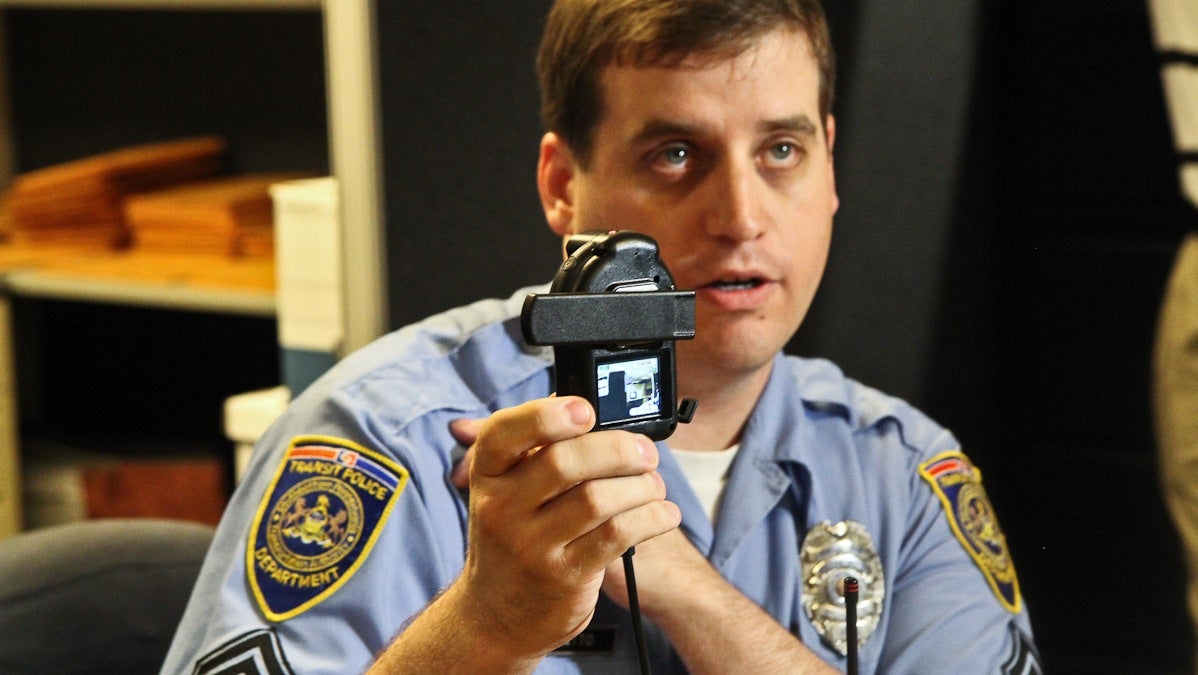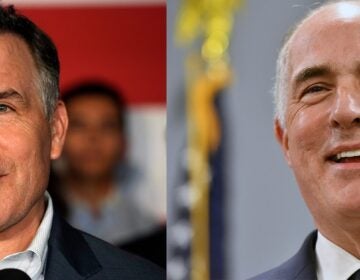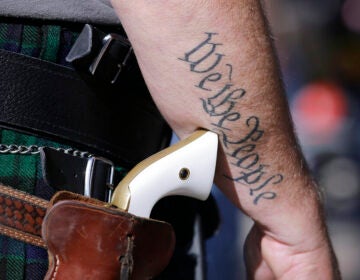Philly police set to test out wearable cameras
Listen
SEPTA Transit Police Sgt. Timothy Catto demonstrates how the new body-mounted camera works. (Kimberly Paynter/WHYY)
It’s good timing for the Philadelphia Police Department. Just as the family of Michael Brown is stepping up calls for police to use wearable body cameras nationwide, a handful of Philadelphia police officers will start testing them out.
The pilot program has been in the works since the summer, when the Pennsylvania Legislature first authorized the use of wearable cameras. Police Commissioner Charles Ramsey called them “long overdue,” despite the costs.
“The technology is there and we need to take advantage of the technology,” Ramsey told the Philadelphia Inquirer.
Andy Hoover of the Pennsylvania ACLU said that the cameras raise plenty of privacy issues, but that, by and large, they’re manageable. And when properly handled, Hoover said, the cameras benefit police and citizens, acting like “another set of eyes” that can provide accountability and encourage everyone to play it cool in tense situations.
However, he’s concerned by one particular loophole in the Pennsylvania law. “The legislature was silent on a couple of key issues. Most prominent is that there’s no requirement that camera must stay on at all times during an encounter with the public,” he said.
“We have seen situations in other cities where officers have turned off these cameras when it was convenient for them. So that’s the real problem here,” Hoover said. “The legislature took a pass on implementing effective guidelines for these cameras.”
The good news, Hoover said, is that police departments and local governments can set policy of their own to guide officers.
Some wearable cameras are already in use in Bucks County’s Richland Township, where Police Chief Richard Ficco says they’ve worked out well. Complaints about officers are down since the cameras’ arrival, he said, and he thinks it encourages citizens to treat officers more civilly as well.
His officers are instructed to film all “encounters” with civilians, informing them as soon as is practical that the camera is running, and asking permission to film in homes or anywhere else where a resident might reasonably expect privacy.
All in all, Ficco said, he won’t be surprised to see the technology spread. But it’s no panacea, he added.
Even if Officer Darren Wilson had been wearing a camera in August when he shot Michael Brown in Ferguson, Missouri, a camera might not have captured the entire incident.
“Would it have helped? Potentially,” said Ficco. “Would it have definitely [helped]? It might not have. If he was still sitting in the car when this occurred … you might not have seen everything that occurred. But if there was audio, you would have heard everything.”
WHYY is your source for fact-based, in-depth journalism and information. As a nonprofit organization, we rely on financial support from readers like you. Please give today.




